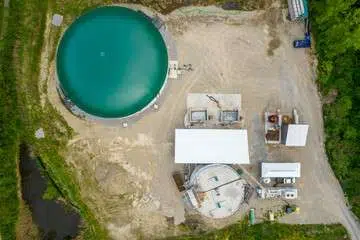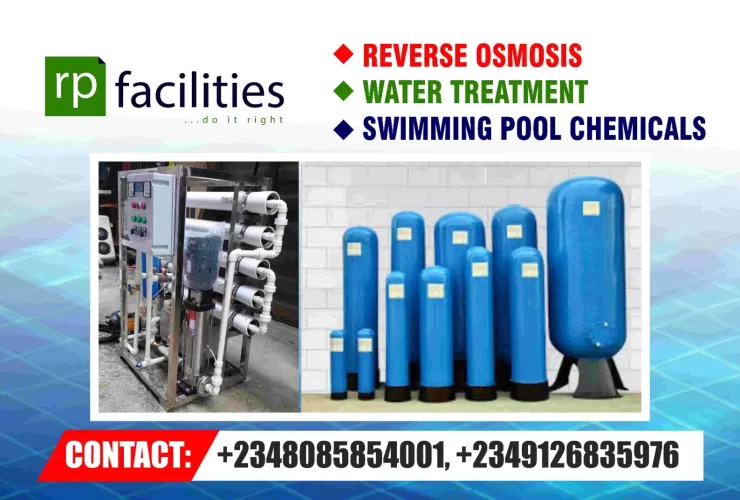Harnessing the Power of BIOGAS: Sustainable Sewage Treatment Solutions for Lagos
The growing need for innovative and eco-friendly sewage treatment solutions in Lagos due to urbanization and population growth.
As the megacity of Lagos grapples with the mounting challenges of urbanization and population growth, the need for innovative and eco-friendly sewage treatment solutions has never been more pressing. One promising technology that has gained traction in the region is the use of BIOGAS systems for the treatment of wastewater and organic waste.
The potential of BIOGAS systems to transform the way Lagos manages its sewage and waste by effectively treating wastewater and organic waste, while also generating clean, sustainable energy.
BIOGAS, a renewable energy source produced through the anaerobic digestion of organic matter, has the potential to transform the way Lagos manages its sewage and waste. By leveraging this natural process, BIOGAS systems can not only effectively treat sewage but also generate clean, sustainable energy that can be utilized for various applications.
LAGOS STATE WASTEWATER MANAGEMENT OFFICE (LSWMO)
The Office was under the supervision of the Honourable Commissioner for the Ministry of the Environment and Water Resources. The headquarters of Lagos State Wastewater Management Office, Wastewater House, Obasa, off Oba Akran, Ikeja was commissioned and officially handed over for use in December 2010.
VISION
A Lagos Smart-City with Clean and Sustainable Water resources that is devoid of Wastewater contamination.
MISSION
To entrench sustainable and healthy Wastewater Management practices in Lagos State, through the implementation of appropriate and globally-proven Wastewater Management Policies, Programmes and Projects.
MANDATE
The mandate of the Office covers the implementation of policies, plans, programmes and projects on sewage and septage management in the State. The responsibility encompasses the management of the generation, collection, transportation, treatment and disposal of wastewater in order to ensure the discharge of a permissible and adequately treated effluent into the environment.
CORE VALUES
In the quest towards achieving our strategic vision and our grand mission at all levels; we act based upon the following core values.
Overcoming the Sewage Crisis in Lagos: Biogas and Biodigester Solutions for Sustainable Wastewater Management
Lagos, the commercial and economic hub of Nigeria, is facing a daunting challenge in managing its rapidly growing population and the accompanying surge in wastewater and sewage. As the most populous city in Africa, with an estimated population of over 20 million, Lagos grapples with an overburdened and often outdated sewage infrastructure that struggles to keep pace with the city’s expansion.
Historically, sewage management in Lagos has been a persistent issue, with the majority of the population relying on inadequate septic tanks and open-pit latrines, leading to the indiscriminate discharge of untreated waste into the environment (Lagos State Government, 2020). This has had a devastating impact on the city’s waterways, groundwater resources, and overall public health, with the outbreak of waterborne diseases being a common occurrence.
In response to these challenges, the Lagos State Government has enacted several statutory laws and regulations aimed at improving wastewater and sewage management. The Lagos State Environmental Management and Protection Law (2017) mandates the proper treatment and disposal of sewage, while the Lagos State Wastewater Management Regulation (2020) outlines the requirements for wastewater discharge and treatment. However, the implementation of these laws has been hampered by a lack of resources, infrastructure, and public awareness.
To address the sewage crisis, the Lagos State Government, in collaboration with private sector partners, has begun to explore the potential of biogas and biodigester technologies as sustainable solutions. Biogas, a renewable energy source produced through the anaerobic digestion of organic matter, has emerged as a promising alternative to conventional sewage treatment methods.
Biodigesters, another technology gaining traction in Lagos, are closed systems that use anaerobic digestion to break down organic waste, including sewage, into biogas and nutrient-rich digestate. These systems offer a decentralized, scalable, and environmentally friendly solution for wastewater management, particularly in areas with limited access to centralized sewage infrastructure.
“The implementation of biogas and biodigester technologies in Lagos has the potential to revolutionize the way we approach sewage and waste management,” says Dr. Funmi Akinbode, an environmental expert and professor at the University of Lagos. “Not only do these solutions effectively treat wastewater, but they also generate renewable energy and valuable by-products that can be reused, creating a circular economy and reducing the environmental impact of waste disposal.”
As Lagos continues to grapple with the challenges of urbanization and population growth, the adoption of biogas and biodigester technologies for sewage treatment stands as a beacon of hope. By harnessing the power of these innovative solutions, the city can move towards a more sustainable and resilient future, ensuring the health and well-being of its citizens while contributing to the broader global goals of climate action and environmental preservation.
As Lagos continues to grapple with the complexities of urban growth, the adoption of BIOGAS technology for sewage treatment stands as a shining example of how innovation and environmental stewardship can be seamlessly integrated to create a more livable, sustainable, and prosperous future for the city.




Permalink